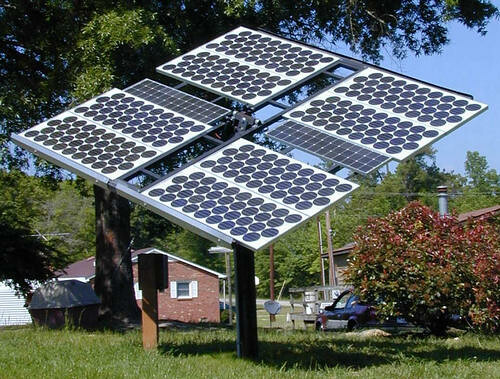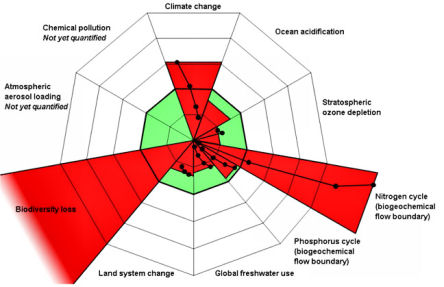It is jam band Friday – http://www.youtube.com/watch?v=irZi18VR31M
This is a perfect example of an Oil and Gas shill. Actually at this point I guess I should call him a Carbon front man. Ever notice how it’s always a man? He ignores the subsidies paid to the Oil and Gas business right now, which are huge. He ignores the impact of the pollution (externalities you know). He ignores the fact that, as predicted, we are starting to use oil shale and oil sands which are marginal materials because we are running out of resources. Not because of “magical” new technologies. He ignores the simple fact that if everyone in the world heated their water using geothermal or solar we could cut consumption in half….
( http://www.youtube.com/watch?v=JeRa3RtBiIU&feature=related )
In fact he sounds like a buggy maker or a whip maker right after the automobile was first introduced.
http://www.buggymuseum.org/buggytown.htm
http://www.time.com/time/magazine/article/0,9171,757393,00.htmlhttp://www.tocreateyourdestiny.com/html/where_have_all_the_buggy_maker.html
Unlike those Talk Radio these days, I like to periodically present the other side of a case and oh boy, does this guy do it.
http://www.energytribune.com/articles.cfm?aid=2544
Posted on Nov. 05, 2009
Renewable Banality: The Latest British Export

Photo by Mitch: Flickr
I loved the true story of the Nigerian energy worker who, having received a pay check for $900, amended the figure to read $9,000. As the reporter wittily put it, “The check fraud proved entirely successful … right up to the point where he attempted to cash it.” That’s kind of how I feel about the renewable energy revolution. It will prove entirely successful in the eyes of the public and media — right up to the point where the lights start going out. And those lights will soon start going out, according to a new report.
( http://www.youtube.com/watch?v=PYxp6OIEZlk&feature=related )
I fully understand the romantic attraction of the clean energy revolution and the rush to replace ‘dirty’ fossil fuels. In the light of the war on carbon it’s a no brainer, right? Which is precisely why, just as diminishing EU and UK subsidies are prompting an industry exodus westward, the British renewables industry may be about to be given an unexpected investment shot in the arm from some of the world’s biggest multinational companies in one of the biggest analogs to the adage “I gave at the church,” in this case the environmentalism church. Companies, it seems, in their rush to appear politically correct are oblivious to how that renewable revolution is ushering in a new dark age in Britain.
Why the multinationals?
Speaking at a UK Confederation of British Industries (CBI) conference in October, the Bank of America’s head of power and utilities, John Lynch, named companies like Google, Microsoft, Wal-Mart and IKEA (the Swedish home goods company) as being potential new investors for Britain’s offshore wind industry. “This is the technology that the UK is leading in, and these companies are looking at ways to get involved,” Lynch told his CBI audience, “because it meets their own corporate social responsibility objectives.” Enthusing over the prospect of a massive new injection of funds for British industry, Lynch noted how the Crown Estate (which owns the UK seabed) had launched the offshore program specifically to enable Britain to meet its target of 80 percent cuts in carbon emissions by 2050 compared with 1990 levels. Clearly nobody had told Lynch that in recent weeks the leaders of Britain’s biggest energy companies privately warned the government that its climate targets, contingent upon renewable sources replacing hydrocarbon fuels, are “illusory” and “delusional.
:}
( http://www.youtube.com/watch?v=YMdCLL9Q6Ck&feature=related )
as we say in the editing business … or dot dot dot
Put bluntly, Tucker shows that industrial scale renewable energy is, realistically and mathematically, an economic non-starter.
Ironically, just as UK and European subsidy opportunities are dwindling and the revolution faltering, the retail multinationals may be about to reinvigorate the flagging UK program. And as the economic cost of renewables is being counted across Europe, Britain’s energy-climate policy is likely to be touted increasingly as the blueprint for others to follow. A rash of UK studies continue to sound alarm bells over the government’s current energy direction and, one of these, just published, should do the same well beyond UK shores.
Does it really take an Einstein?
In October, the UK energy regulator, Ofgem (The Office of Gas and Electricity Markets), warned that Britain was facing 1970s style power blackouts within just four years – a much shorter timescale than previously thought. Project Discovery cited the British government’s failure to renovate its “crumbling power infrastructure” due to compliance with new EU rules that will force the closure of a quarter of the country’s power stations by 2015. In a typically British understatement, Alistair Buchanan, Ofgem’s chief executive warned, “There could be a potential shortfall in the period 2013-18 … Life might be pretty cold.” Buchanan’s assessment is that only an “involuntary curtailment of demand” – power cuts – can conserve household supplies, unless the government acts urgently to upgrade its nuclear plants. Jeremy Nicholson, of the Energy Intensive Users Group, representing some of Britain’s biggest manufacturers, said that power cuts that hit UK business first would present a “material threat to heavy industry.” Nicholson also warned that once the crisis hit the 60 percent hike in British energy bills currently being acknowledged by the government will, more realistically, hit the 120 percent mark.
Bottom line? If Einstein’s E=mc2 as it applies to renewable energy doesn’t cut the intellectual ice for prospective investors and foreign governments alike, perhaps another will. Try this:
UK energy-climate policy, circa 2009 = a blueprint for black-outs.
See what I mean about a fraudulent check being entirely successful right up to the point
:}
But here is where his analysis shows his paradigm. He says industrial users have to have “so in so” amount of power. I say great. Let the industries that need it generate it in such a way that they generate no pollution. Thank you very much and usins in the residential market, well we will keep our alternative energies. Come on you ARE the smartest guys in the world right? oh..OR maybe not?
( http://www.youtube.com/watch?v=YQs4Ra_qEvI&feature=related )
:}

 Welcome to our free online resource for off-grid living.
Welcome to our free online resource for off-grid living.

 In the summer of 1980, my wife, three-month old son and I moved “off-grid”. We loved living in San Francisco but wanted to live a simpler, more independent lifestyle, and so we bought a small cabin with land on a rural island in the Pacific Northwest. Since there were no services to the island, our home had no electricity. Residents of the island had to create their own electricity or do without.
In the summer of 1980, my wife, three-month old son and I moved “off-grid”. We loved living in San Francisco but wanted to live a simpler, more independent lifestyle, and so we bought a small cabin with land on a rural island in the Pacific Northwest. Since there were no services to the island, our home had no electricity. Residents of the island had to create their own electricity or do without.








 Taylorville Energy Center (TEC) is a proposed 500- to 525-megawatt clean coal power plant using an advanced technology called Hybrid Integrated Gasification Combined-Cycle (
Taylorville Energy Center (TEC) is a proposed 500- to 525-megawatt clean coal power plant using an advanced technology called Hybrid Integrated Gasification Combined-Cycle (